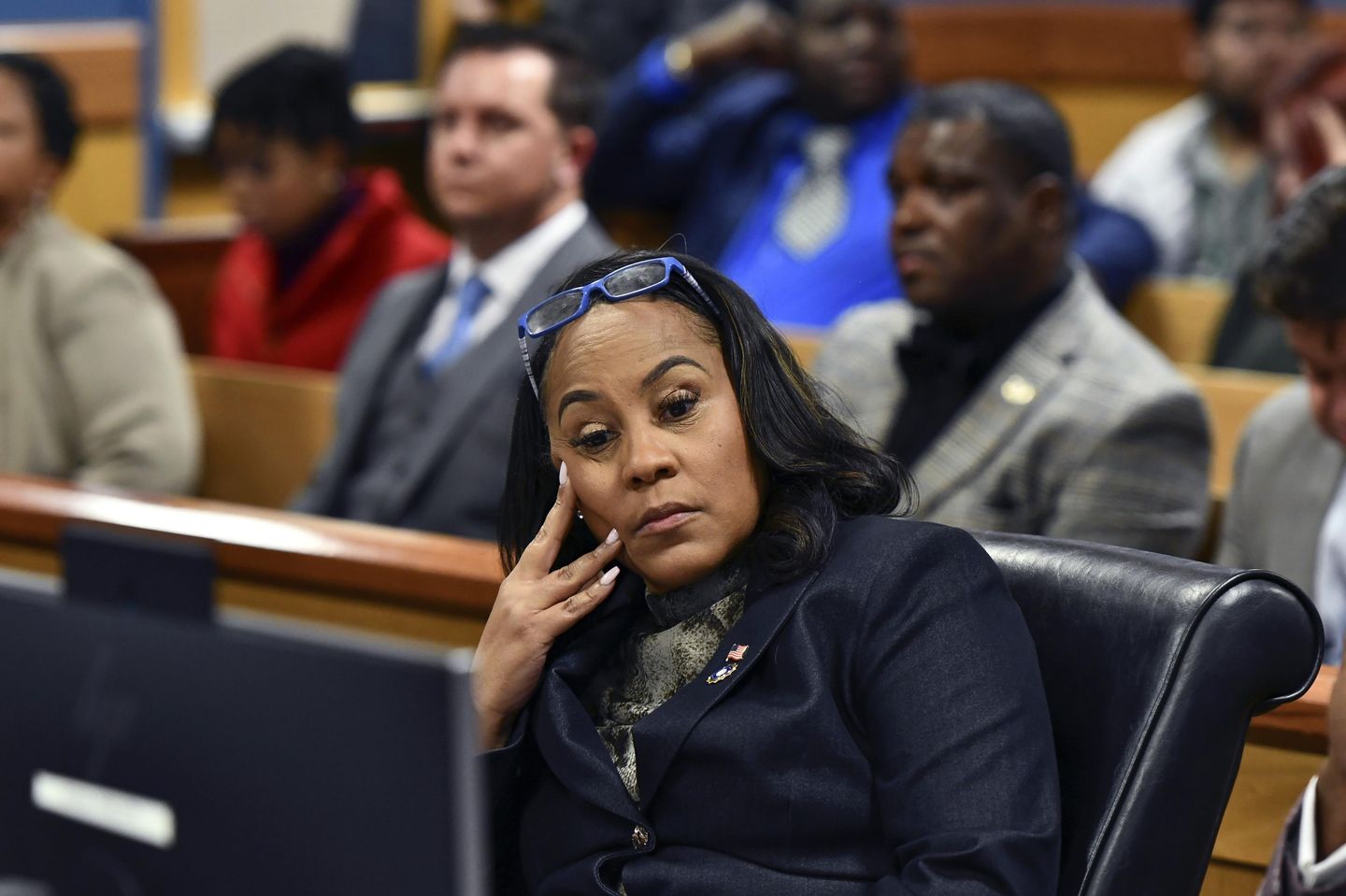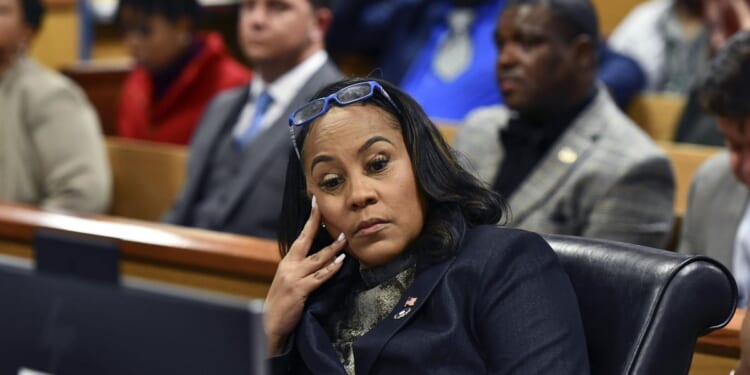
Former President Donald Trump’s lawyer on Thursday joined an effort to disqualify District Attorney Fani Willis in the Georgia election subversion case and invalidate the indictment.
They said the prosecutor injected “racial animus” into the debate around her alleged inappropriate relationship with Nathan Wade, the special prosecutor she hired for the Trump case.
Mr. Trump’s lawyer, Steve Sadow, pointed to a 35-minute speech that Ms. Willis gave to the Big Bethel AME Church in Atlanta during the Martin Luther King Jr. Day weekend. In her remarks, Ms. Willis said no one objected to the White special prosecutors she hired and said Mr. Wade, a Black man, had been hired by Republicans in other counties.
“Without mentioning the alleged affair or even trying to put her alleged malfeasance in context, she repeatedly and inappropriately injected race into the case and stoked racial animus by, among other statements, asking God why the defendants were questioning her conduct in hiring a Black man but not his White counterparts, and why the judgment of a Black female Democrat wasn’t as good as White male Republicans,” Mr. Sadow wrote in a motion to supplement a motion by co-defendant Michael Roman.
Mr. Roman dropped a bombshell this month by alleging Ms. Willis had an affair with Mr. Wade, a lawyer who received taxpayer money for his work in the Georgia case that resulted in racketeering charges against Mr. Trump and 18 co-defendants.
The motion said Ms. Willis and Mr. Roman took lavish trips and supported his claims with airline ticket records. He says the situation presented a legal problem for Ms. Willis because she stood to personally benefit from the prosecution of Mr. Trump and his allies.
Ms. Willis hasn’t publicly confirmed or denied whether she had a relationship with Mr. Wade, who is married but steeped in divorce proceedings. She has until Feb. 2 to formally respond to Mr. Roman’s allegations, ahead of a Feb. 15 court hearing on the matter.
Mr. Sadow says Ms. Willis, through her church speech, ran afoul of professional standards that limit outside comments about cases.
“These assertions by the DA engender a great likelihood of substantial prejudice towards the defendants in the eyes of the public in general, and prospective jurors in Fulton County in particular. Moreover, the DA’s self-serving comments came with the added, sought after, benefit of garnering racially based sympathy for her self-inflicted quagmire,” he wrote. “Although this court may not have the authority to disbar DA Willis, it certainly does have the power to dismiss the indictment and to disqualify her, the special prosecutors she hired, and her office from any further involvement in this case or any related matter, and should do so here.”
Ms. Willis began investigating Mr. Trump three years ago based on his bid to pressure Georgia Secretary of State Brad Raffensperger to dig up enough votes to overtake President Biden’s narrow electoral victory in the state in 2020.
A grand jury last year indicted Mr. Trump and his associates. The former president faces 13 counts, including a violation of Georgia racketeering laws; solicitation of a violation of an oath by a public officer; and several counts related to alleged conspiracies to commit forgery, make false statements and writings, or make false filings.
However, 18 co-defendants face an assortment of charges — there are 41 counts in all — that at times overlap with those against Mr. Trump.
The debate over Ms. Willis’ alleged relationship with Mr. Wade is an unexpected ripple in the case, which is one of four criminal matters facing Mr. Trump as he campaigns as the front-runner for the GOP presidential nomination.
Political and legal pundits thought the Georgia case was particularly strong, given a recording of Mr. Trump leaning on Georgia officials over the election results and guilty pleas in which three former Trump attorneys agreed to testify for prosecutors.
Now, the courts must decide if it must remedy the situation between Ms. Willis and Mr. Wade, something that could slow down the path to trial.
Legal pundits have told The Washington Times they do not think the matter will upend the case, but it could slow things down as Mr. Trump tries to delay his legal troubles until after the November election.












